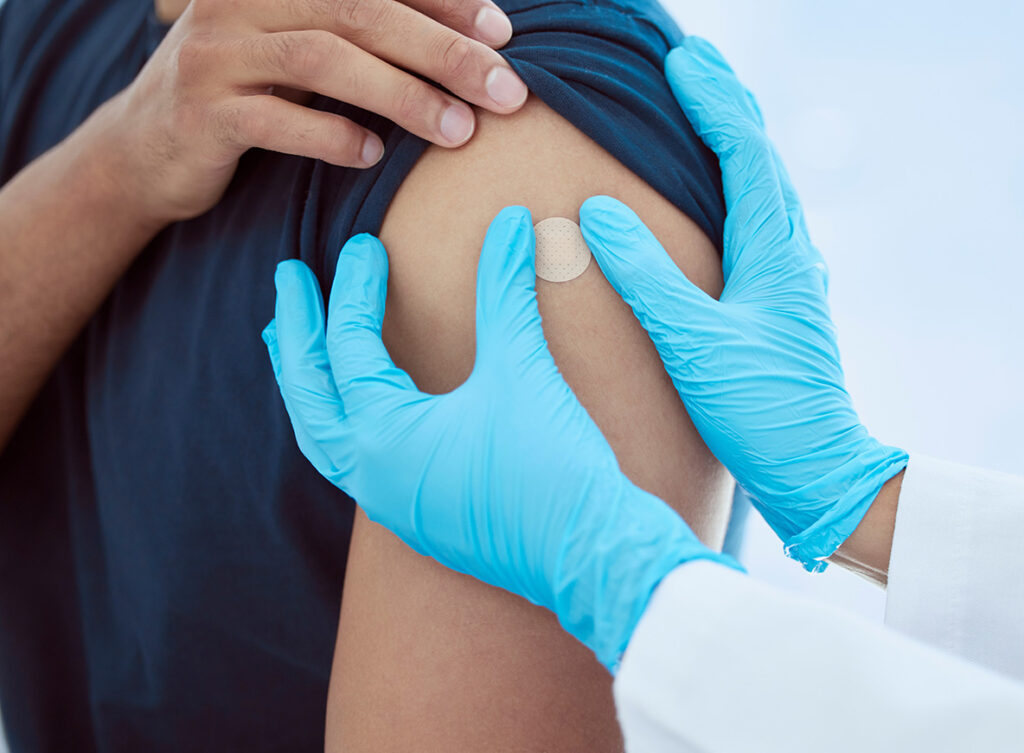Why Tetanus Awareness Matters for Skilled Trades Workers
Remember your parents or grandparents warning you to watch where you step so you don’t step on a rusty nail? Those rusty nails — and other objects that come into contact with soil, dust, and rust — can carry bacteria that cause tetanus.

Many skilled trades workers are in constant contact with sharp tools, heavy equipment, and jagged materials. That’s where the risk comes in. Tetanus does not spread from person to person; instead, it comes from spores in the dirt and dust around us. People can get tetanus when bacteria enter the body through cuts, punctures, or open wounds, often caused by contaminated tools or materials on the job.
Even with the best safety practices, cuts, scrapes, and puncture wounds happen. That’s why tetanus prevention is an essential part of job site safety.

The Dangers of Tetanus Infection
Tetanus infection can have painful and disabling effects. Many know it as “lockjaw” because it causes severe muscle contractions in the jaw and throughout the body. When bacteria enter the body, they release a toxin that leads to muscle stiffness, trouble breathing, difficulty swallowing, seizures, and even death.
Even minor injuries can become life-threatening if tetanus bacteria enter your bloodstream. In fact, 1 in 10 people who contract tetanus die from it.
Prevention Is the Best Protection
Once tetanus takes hold, there’s no cure — prevention through vaccination is the only defense. Staying up-to-date on your tetanus shot helps keep you healthy and ready to work. Immunization protects against tetanus and other illnesses that can interrupt your livelihood.
A tetanus shot (listed as DTaP, Tdap, or Td in medical records) is recommended for all teens and adults every 10 years. However, if you get a cut, puncture, or wound and it’s been more than five years since your last shot, talk to your healthcare provider about getting another.

Where to Get a Tetanus Shot in West Virginia
In West Virginia, tetanus vaccines are available in many locations, including:
- Your healthcare provider’s office
- Local health departments
- Community health centers and free clinics
- Pharmacies and some workplaces
Most insurance plans cover adult vaccinations. For adults without insurance or whose insurance doesn’t cover immunizations, free or reduced-cost vaccines may be available through community health programs.
Staying Safe on the Job
Like the precautions you take every day to prevent injury on the job, tetanus immunization is another important tool in your safety toolbox. Protect yourself, your coworkers, and your family by staying vaccinated — because one small cut shouldn’t risk your life.
Contributed by Elaine Darling, MPH